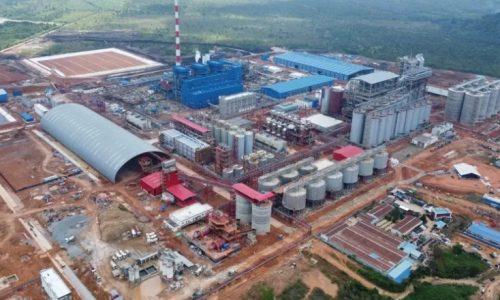Indonesian coal miners are facing the prospect of losing their jobs as the country embraces clean energy, necessitating the early shutdown of coal mines.
According to a recent report from the Global Energy Monitor, it is estimated that approximately 30,000 workers in the coal industry in Indonesia could potentially be laid off from 2020 to 2040.
Decarbonization efforts contributes to layoff
To expedite its decarbonization efforts, Indonesia introduced the Just Energy Transition Partnership (JETP) on November 15, 2022, during the G-20 Leaders’ Summit held in Bali.
The JETP is an agreement aimed at mobilizing an initial $20 billion in both public and private funding to promote the transition to clean energy in Indonesia. Part of this funding will be designated to support the early closure of coal-fired power plants by 2030.
The Global Energy Monitor’s analysis suggests that the shift to clean energy in Indonesia will result in the displacement of around 30,000 coal miners between 2020 and 2040.
Dorothy Mei, Project Manager for the Global Coal Mine Tracker at Global Energy Monitor, emphasized that while coal mine closures are inevitable, it is crucial to prevent economic hardship and social turmoil for the affected workers.
Third largest coal producer
Indonesia is the third-largest coal producer globally, employing 159,900 coal miners, with almost 40 percent of them concentrated in East Kalimantan, the province with the most extensive mining activity.
The mining sector has expanded across 5 million hectares of East Kalimantan and constitutes 35 percent of the local GDP. The International Energy Agency (IEA) has identified this province as the most coal-dependent region worldwide, with coal mining employment representing 4-8 percent of the workforce.
The importance of Indonesia’s JETP in addressing the needs of coal miners during the coal phase-out is highlighted in the October report by Global Energy Monitor titled “Scraping by 2023: Global Coal Miners and the Urgency of A Just Transition.”
Worldwide impact
It’s important to note that layoffs are not confined to Indonesian coal workers; they have global implications. The report suggests that, by 2035, an average of 100 coal miners worldwide could potentially face unemployment daily.
Ryan Driskell Tate, Coal Program Director at Global Energy Monitor, emphasized the need to prioritize the welfare of coal workers to ensure that the just transition becomes a reality, rather than mere rhetoric.
He pointed out that with the readiness of technologies and markets for an energy transition, addressing the unique concerns of coal miners and their communities is imperative.
The majority of these coal workers are situated in Asia, with China and India expected to experience the brunt of coal mine closures.
China, in particular, has over 1.5 million coal miners who produce more than 85 percent of the country’s coal, contributing to half of the world’s total coal production.
The northern provinces of Shanxi, Henan, and Inner Mongolia are responsible for mining over 25 percent of the world’s coal and employ 32 percent of the global mining workforce, which amounts to approximately 870,400 people.
Projections indicate that by 2050, nearly 1 million coal mining jobs (990,200) are anticipated to vanish due to the expected closures in the coal industry. This could result in layoffs for over one-third (37%) of the existing workforce.
China’s Shanxi province is anticipated to face the most significant job losses globally, with almost a quarter of a million (241,900) jobs at risk by 2050. Meanwhile, Coal India, a state-owned coal mining company, faces the potential for the largest job cuts, with 73,800 direct workers at risk by the middle of the century.
Tiffany Means, a researcher at Global Energy Monitor, stressed the need for governments to address the impending closures of coal mines, especially those operated by state-owned enterprises, to ensure a managed transition for affected workers and communities as the world transitions into a clean energy economy.









